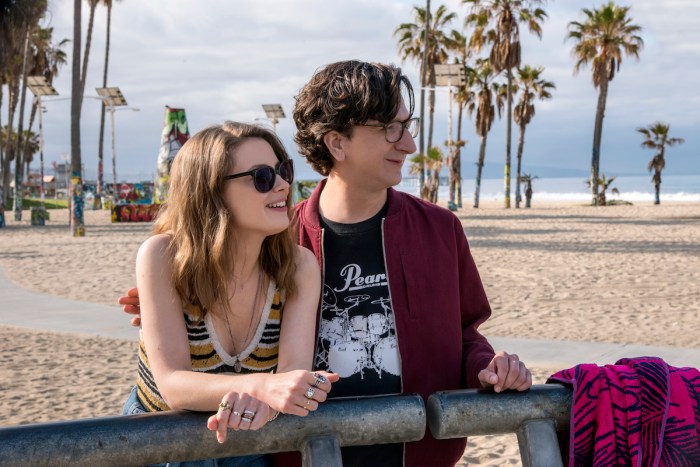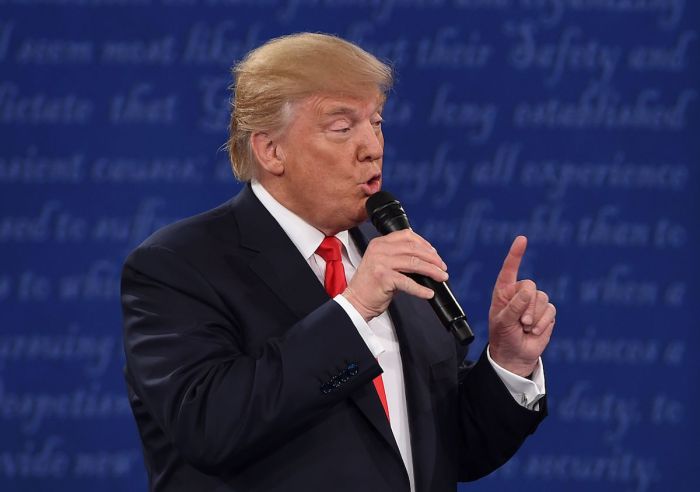Alex Karpovksy’s irascible, endearing Ray is the moral center of “Girls,” the elder in the friend group who offers a critical take on their narcissism. Ahead of the show’s final season, the 41-year-old Newton, Mass. native tells us what Ray’s doing back with Marnie and how his conscientious — albeit existentially conflicted — character would have found his calling as an activist post Trump’s election. Related: Andrew Rannells: Elijah thinks he’s the star of ‘Girls’ Ray is back with Marnie. What’s the attraction for him there?
One [reason] is that he sees her as an outsider to some degree; she’s someone who’s been marginalized, who’s desperately trying to fit in and be accepted, adhere to some convention of normalcy. Another answer — and this is a little more crass — he’s getting the girl he was never able to get before. So, there’s an insecurity that’s just being preyed on that he can’t fully deny. Sometimes I wonder why he’s even spending time with these people.
He’s a difficult person. He’s not a very social person. I don’t know if he would have very many friends if he ditched this group. I think he has a really special connection with Shoshanna and I think he wants to be near her. And part of the tax you sometimes have to pay, in his mind, is dealing with Hannah and Marnie and Adam: collateral damage. Where do you see Ray in five, 10 years?
It changes a little bit based on my mood and blood sugar levels. Obviously this was all shot and written before Trump was elected. I think Ray would flip the f—k out in the wake of the election and I can’t imagine he would just do nothing. Maybe he would be one of these guys who’s organizing these JFK-type protests. Maybe he would drive to Montgomery, Al. and get on a soapbox there. He’d probably also have a podcast about the history of Brooklyn, just to keep things interesting. Are you still in Greenpoint?
Nope, I moved to L.A. I’m 41, I’ve been [in Brooklyn] for 16 years. I love it and it’s obviously a big part of my life, but I didn’t like what was happening to the neighborhood. And I personally needed a change. A lot of my friends have moved there. I’m an old Jew, I need to be in the sun more. We actually bring up [gentrification] in the show, Ray starts interviewing elderly people to try to make a chronicle of what exactly we’re losing and how fast we’re losing it. He feels he needs to do something. Any favorite episodes or scenes from your time on “Girls”?
In Season 2 [Episode 4, “It’s a Shame About Ray”], there’s a scene where I tell Shosh that I love her, it’s on the subway at the Williamsburg L. It was the first time we saw the tenderness and vulnerability and intimacy in his character, and it opened the door for us to peel back the layers further on him, and explore the underpinnings of his judgment and anger. Also, I directed an episode [Season 5, Episode 9, “Love Stories”] that was a big deal for me. It was really fun to work with these people that I’ve been with as an actor and try to shape a new character with Jenny Slate because she wasn’t really a part of our “Girls” world. Here we were able to sculpt an individual who could bring out elements of the Hannah character that felt new after five years. What’s your take on the characters’ perpetual narcissism? Is it because they’re in their 20s? Is it something inherent?
As I understood it, we never wanted to make a show about mature, balanced, healthy people. That was never interesting to anybody. We wanted it to be about flawed, myopic, vain, narcissistic people. We felt these were the type of people we knew, these were the type of people we could really skewer, and I think that opened us up for criticism: “Why aren’t they hanging out with these types of people? Why are they making these kinds of mistakes repeatedly?” That was always part of initial interest in the show as I understood it. And Ray serves as the kind of moral center.
Someone has to. I don’t know if there’s a term for this in Greek theater or something — it’s not the chorus — someone has to say what the audience feels or at least hint at it. He’s sort of the guy who’s like, “Hey, we know how you feel and we’re going to make fun of them for being this way.” That’s why he’s always sort of giving him these zingers, because we’ve got to let the steam out; otherwise the audience is going to have a f—king aneurysm.


















